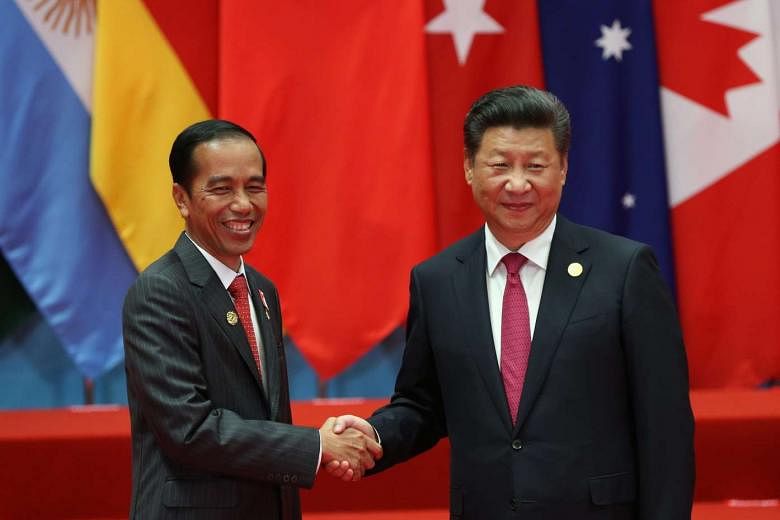In its editorial on Sept 7, the paper reminds the government that Japan remains important to the country too.
Given the non-binding nature of the decisions and measures of the G-20 major economies, the meeting between President Joko "Jokowi" Widodo and China's President Xi Jinping in Hangzhou on Friday could generate more immediate and concrete benefits for both countries than the actual summit did.
As both countries are the largest economies in the East Asia region, with China the world's second-largest economy, the meeting of the two leaders - the fifth over the past two years - was strategically important for further cementing bilateral relations and further nurturing mutual understanding and cooperation.
Jokowi's third visit to China, which ended on Monday, as part of the G-20 Summit, only reflected the rapidly deepening ties, notably economic relations, between the two countries. China is now Indonesia's largest trading partner and one of the largest foreign investors in the country. As bilateral ties deepen, there is always the risk of some economic, trade or investment spats or disputes. Frequent meetings between the two leaders should be able to prevent such outbursts from worsening.
It is encouraging to note that the noisy protests often raised by Indonesian manufacturers and farmers over the flood of Chinese goods into domestic markets over the past few years did not divert the attention of the government and business leaders from the long-term, broader benefits of expanded bilateral economic cooperation. If imports from China caused severe disruptions in the domestic market, Indonesia could still resort to such measures allowed by the Geneva-based World Trade Organisation as a safeguard: anti-dumping measures and countervailing actions.
After all, trade is only one aspect of the overall economic relationship. Yet more important is for both countries to increase the depth and breadth of their economic relations through investment, which is the best vehicle for the transfer of expertise, technology and the development of global market networks.
It is true that Indonesia, like many other countries in Asia, has been suffering the brunt of an economic slowdown in China, especially because we are a major exporter of commodities like palm oil, rubber, cocoa, coal and other minerals. As China's economy continues to grow, though at a lower rate and the number of its middle-class consumers increases to become a huge pool of purchasing power, it has also become a major supplier of tourists to Indonesia.
China's big lending and investment commitment to infrastructure development in Indonesia, like power generation and railway transportation, is also rather strategic because it is the poor and inadequate infrastructure that has long been the main cause of Indonesia's economic inefficiency and lack of competitiveness.
However, it is well advised for the government to see to it that our burgeoning relations with China should not be at the expense of our similarly strategic partnership with, among other major economies, Japan, which between the 1960s and the 1990s had been one of our biggest trading partners and largest foreign investors and was the biggest donor of soft-term development aid to Indonesia. Both Japan and China are equally important for us.
* The Jakarta Post is a member of The Straits Times media partner Asia News Network, an alliance of 21 newspapers.

